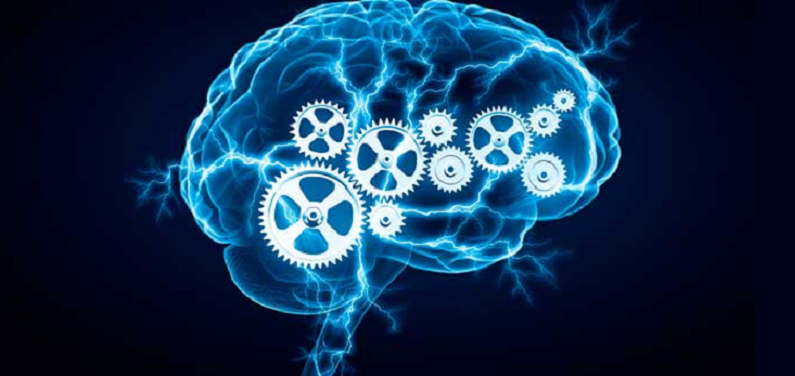
In a world where the pace of life is ever-accelerating, maintaining and enhancing our mental agility and reaction time is not just a luxury; it’s a necessity. Whether you’re a professional seeking an edge in high-stakes environments, a student aiming to excel in academics, or simply an individual aspiring for a sharper, more responsive mind, the quest for cognitive enhancement is universal. This pursuit leads us to the intriguing world of nootropics, where N-Acetyl L-Tyrosine (NALT) emerges as a compelling aid.
NALT, a more bioavailable form of the amino acid L-Tyrosine, is renowned for its potential to optimize brain function. But what makes NALT particularly fascinating is its reported ability to specifically improve mental agility and reaction time — key components of cognitive dexterity.
Contents
- Introduction to N-Acetyl L-Tyrosine (NALT) and Mental Agility and Reaction Time
- The Role of N-Acetyl L-Tyrosine (NALT) in Cognitive Function
- Improving Mental Agility with NALT
- Enhancing Reaction Time Through NALT Supplementation
- Optimal N-Acetyl L-Tyrosine (NALT) Dosage and Administration for Cognitive Benefits
- References
Introduction to N-Acetyl L-Tyrosine (NALT) and Mental Agility and Reaction Time
In our fast-paced, information-driven world, the ability to think quickly and react swiftly is more valuable than ever. From professionals navigating high-pressure environments to students striving for academic excellence, mental agility and rapid reaction time are crucial skills that can significantly impact success.
Defining Mental Agility and Reaction Time
Before delving into the workings of NALT, it’s essential to understand what we mean by mental agility and reaction time. Mental agility refers to the brain’s ability to think, learn, and adapt quickly. It’s about how swiftly we can process information, make decisions, and switch between tasks. Reaction time, on the other hand, is the speed at which we respond to external stimuli. It’s a critical component in everything from driving a car to playing sports and even in making split-second decisions in the workplace. These two aspects of cognitive performance are vital in our everyday lives, influencing how we manage challenges and seize opportunities.
Overview of Nootropics and NALT
Nootropics, often referred to as “smart drugs” or cognitive enhancers, are substances that can improve brain performance in healthy individuals. Among these, N-Acetyl L-Tyrosine, or NALT, stands out. NALT is an acetylated form of L-Tyrosine, an amino acid that the body uses to synthesize proteins and produce critical brain chemicals. This nootropic has gained attention for its potential to improve cognitive functions, particularly under stress or fatigue. By focusing on NALT, we aim to uncover how this specific supplement can aid in boosting mental agility and enhancing reaction time.
The Role of N-Acetyl L-Tyrosine (NALT) in Cognitive Function
N-Acetyl L-Tyrosine, commonly known as NALT, is more than just a supplement; it’s a key player in the complex world of cognitive enhancement. To appreciate its impact, it’s crucial to first understand its role in brain function. NALT acts as a building block for important neurotransmitters, directly influencing cognitive processes such as memory, attention, and reaction time.
What is N-Acetyl L-Tyrosine (NALT)?
NALT is an acetylated form of the amino acid L-Tyrosine. This modification enhances its solubility and bioavailability, meaning that the body can absorb and utilize it more efficiently than standard L-Tyrosine. In the brain, L-Tyrosine is a precursor to several neurotransmitters, including dopamine, epinephrine, and norepinephrine. These neurotransmitters are vital for cognitive function, mood regulation, and response to stress.
How NALT Affects the Brain
NALT’s primary role in the brain is to replenish these neurotransmitters, particularly during periods of stress and cognitive demand. Stress, whether physical or mental, can deplete neurotransmitter levels, leading to reduced cognitive performance, slower reaction times, and decreased mental agility. By providing a more readily available source of L-Tyrosine, NALT helps maintain optimal levels of these crucial neurotransmitters, supporting overall brain health and cognitive function [1].
NALT vs. Regular L-Tyrosine
While both NALT and regular L-Tyrosine serve as precursors to the same neurotransmitters, the key difference lies in their bioavailability. NALT’s acetylated form allows it to cross the blood-brain barrier more efficiently, making it a more potent option for cognitive enhancement. This improved bioavailability means that NALT can have a more significant and rapid impact on cognitive functions, particularly in environments where quick thinking and fast reactions are essential.

Improving Mental Agility with NALT
As we navigate the complexities of daily life, the ability to think on our feet and adapt to changing circumstances is invaluable. This cognitive nimbleness, known as mental agility, can be significantly influenced by our brain chemistry. N-Acetyl L-Tyrosine (NALT) emerges as a key player in this arena, offering potential benefits for those looking to enhance their mental flexibility and agility.
Understanding Mental Agility
Mental agility is the brain’s capacity to quickly process information, adapt to new situations, and shift between tasks efficiently. It’s a vital component of problem-solving, learning, and decision-making. In essence, mental agility is about how quickly and effectively your brain can juggle and rearrange information to make sense of and respond to new challenges [2].
Studies on NALT and Cognitive Flexibility
Research into NALT’s impact on mental agility is promising. Studies have shown that supplementing with NALT can enhance cognitive flexibility, particularly under conditions of stress or sleep deprivation. For instance, a study published in the journal ‘Brain Research’ demonstrated that subjects who consumed NALT showed improved cognitive flexibility compared to a control group, especially in demanding and rapidly changing scenarios.
These studies suggest that NALT supplementation can help maintain high levels of cognitive performance, even in challenging conditions. This is likely due to NALT’s role in replenishing neurotransmitters that are critical for brain function and mental adaptability [3].
User Testimonials and Case Studies Regarding NALT and Mental Agility
Beyond scientific research, personal accounts and case studies offer valuable insights into NALT’s effectiveness in real-life scenarios. Many users report experiencing a noticeable improvement in their ability to think quickly and adapt to new situations after starting NALT supplementation. These anecdotal evidences, while not as rigorous as scientific studies, provide a window into how NALT can potentially enhance day-to-day cognitive performance and mental agility.

Enhancing Reaction Time Through NALT Supplementation
While mental agility enables us to process information swiftly, reaction time is about how quickly we can respond to that information. In many aspects of life, from driving to sports and even in everyday decision-making, a fast reaction time can be crucial. This is where NALT supplementation shows its potential as not just a cognitive enhancer but also as a facilitator for quicker responses.
The Importance of Quick Reaction Times
Reaction time is a critical measure of cognitive function, reflecting the speed at which our brain can interpret and respond to external stimuli. A faster reaction time can mean the difference between success and failure in fast-paced environments, whether in a professional setting, during competitive sports, or in critical everyday moments. Improving reaction time can lead to better performance, enhanced safety, and a greater ability to handle unexpected challenges.
Research on NALT’s Impact on Reaction Time
Recent studies have begun to shed light on the relationship between NALT supplementation and improved reaction times. Research indicates that NALT can enhance the synthesis of neurotransmitters that are essential for quick reflexes and rapid responses. For instance, a study in the ‘Journal of Applied Physiology’ found that individuals who supplemented with NALT showed a statistically significant improvement in reaction time compared to those who did not. This improvement was particularly notable in situations of stress or fatigue, where neurotransmitter reserves are typically depleted [4].
Practical NALT Use for Enhancing Reaction Time Applications in Everyday Life
The implications of improved reaction time through NALT supplementation are far-reaching. For athletes, it could mean better performance under pressure. For professionals, it could translate into more efficient and effective decision-making. Even for everyday situations, like driving or responding to emergencies, a sharper reaction time can be invaluable. Many users of NALT report a perceptible difference in their ability to respond quickly to situations, providing anecdotal evidence to support the scientific findings.
Optimal N-Acetyl L-Tyrosine (NALT) Dosage and Administration for Cognitive Benefits
Understanding the right dosage and method of administration is crucial when it comes to nootropics like N-Acetyl L-Tyrosine (NALT). The effectiveness of NALT in enhancing mental agility and reaction time can vary depending on how it’s consumed, and in what quantity.
Recommended NALT Dosages for Mental Agility and Reaction Time
Determining the ideal dosage of NALT is essential for maximizing its cognitive-enhancing effects. The generally recommended dosage of NALT ranges from 350 to 500 mg per day. However, this can vary based on individual factors like body weight, overall health, and specific cognitive needs. It’s important to start with a lower dose and gradually increase it, observing how your body responds. Consulting with a healthcare professional before starting any new supplement regimen is always advisable [5].
Best Practices for NALT Consumption
For optimal absorption and efficacy, NALT should be taken on an empty stomach. This helps in minimizing interference from other amino acids present in food, which can affect its absorption. It’s also recommended to split the daily dosage into two separate doses – one in the morning and one in the afternoon – to maintain stable levels of the supplement in your system throughout the day. Consistency is key; regular consumption of NALT as per the recommended dosage can lead to more noticeable cognitive improvements over time.
Potential Side Effects and Safety Considerations When Consuming NALT
While NALT is generally well-tolerated, it’s important to be aware of potential side effects. These can include gastrointestinal discomfort, headaches, and irritability, particularly at higher doses. If any adverse effects are observed, reducing the dosage or discontinuing use is advised. Additionally, individuals with certain medical conditions or those taking specific medications should consult with their healthcare provider before starting NALT, to avoid any potential interactions.
References
[1] L-Tyrosine to alleviate the effects of stress?
[2] Tyrosine Supplementation: Can This Amino Acid Boost Brain Dopamine and Improve Physical and Mental Performance?
[3] Behavioral and cognitive effects of tyrosine intake in healthy human adults
[4] Affective Bias and Response Modulation Following Tyrosine Depletion in Healthy Adults
[5] The Role of Tryptophan and Tyrosine in Executive Function and Reward Processing

